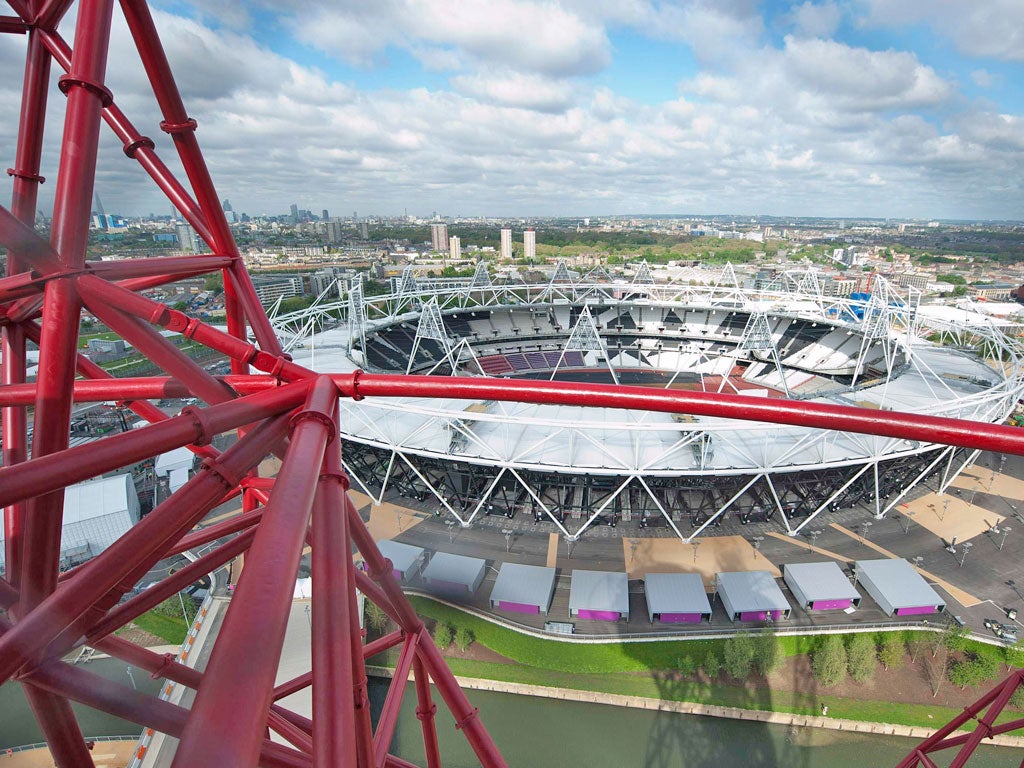Your support helps us to tell the story
From reproductive rights to climate change to Big Tech, The Independent is on the ground when the story is developing. Whether it's investigating the financials of Elon Musk's pro-Trump PAC or producing our latest documentary, 'The A Word', which shines a light on the American women fighting for reproductive rights, we know how important it is to parse out the facts from the messaging.
At such a critical moment in US history, we need reporters on the ground. Your donation allows us to keep sending journalists to speak to both sides of the story.
The Independent is trusted by Americans across the entire political spectrum. And unlike many other quality news outlets, we choose not to lock Americans out of our reporting and analysis with paywalls. We believe quality journalism should be available to everyone, paid for by those who can afford it.
Your support makes all the difference.In every conceivable sense, Stratford is a long way from the foot of South Africa's Table Mountain. But when Gary Lineker tucks his famous toes under the coffee table at the BBC's Olympics studio on the East London site in a few months' time, he might experience more than a little déjà vu.
Perched on top of 18 shipping containers in the shadow of the Olympic stadium, the BBC is using the same hexagonal glass box studio it installed below table mountain at the 2010 World Cup. Then the corporation was criticised for profligacy – the final took place more than a thousand miles away in Soweto. Yesterday the BBC's Director of Sport Barbara Slater stressed both the green credentials and the "value for money" of its new studio. The BBC has also defended the costs of deploying 765 staff to cover the Games. Many will require hotel accommodation, having only recently relocated to BBC Sport's new home in Salford.
"With late working hours and the Olympics being far out in East London, many of these staff would have required hotel accommodation anyway," BBC director, London 2012, Roger Mosey said.
For the duration of the games, BBC1 will be nothing but Olympics from 6am til 1am, with the occasional break for news. Over on BBC Three the Olympics will run from 9am to 11pm, all forming part of 2,500 hours of footage, across 25 channels, showing every single second of Olympic action. Those looking for EastEnders, Panorama, Songs of Praise and some other flagship BBC shows will have to check BBC2. Some of the BBC's other, less popular, shows will be "rested". The 2012 games will, it is said, be the first "digital Olympics".
"The claimed obsolescence of the BBC is a nonsense," said Mr Mosey. "As the nation's broadcaster, we are committed to ensuring that viewers get the most from their Olympic experience and our comprehensive coverage will deliver on that promise."
For the first time, at least in 64 years, those visiting the UK for the Games will be consuming all their Olympics coverage through the BBC. Sian Williams, who will be returning to the BBC Breakfast sofa, this time repackaged as Olympic Breakfast, stressed it would be news-focused.
"The Olympics themselves will generate all sorts of news angles and stories, but our job remains the same. When you switch on in the morning you want to know what's gone on.
"If there's been big events in Syria, or domestically, we will be covering them. We must fulfil our objectives."

Join our commenting forum
Join thought-provoking conversations, follow other Independent readers and see their replies
Comments